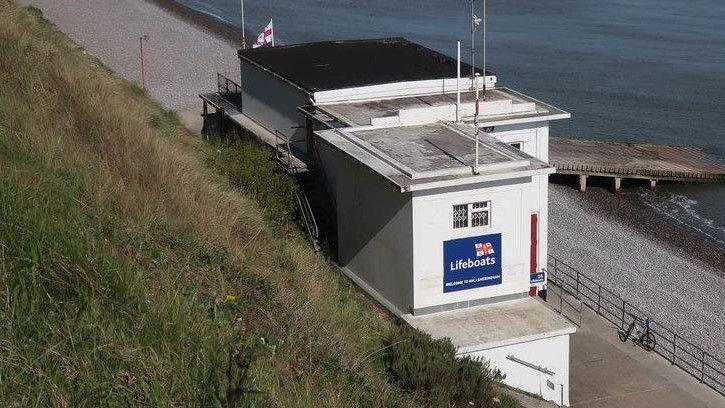Japanese knotweed further threatens eroding cliffs
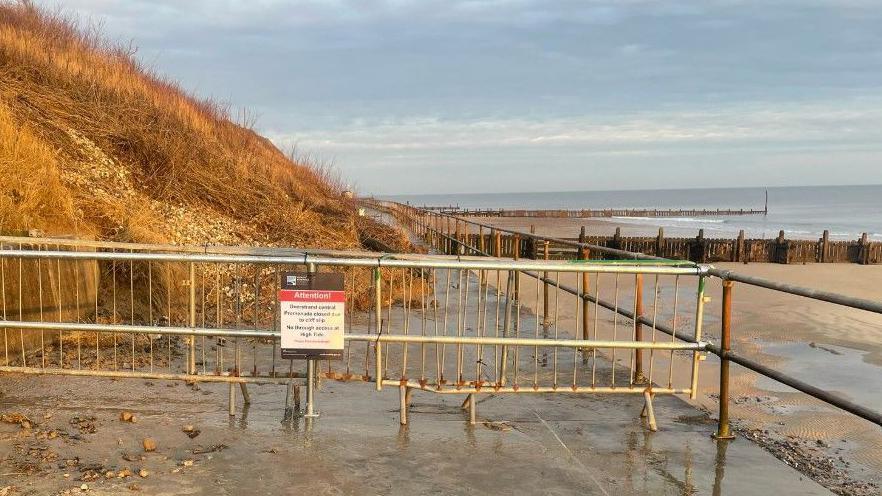
Landslips have led to parts of a promenade being closed
- Published
An invasive plant has begun to take hold along a stretch of vulnerable coastline, a local authority has warned.
North Norfolk District Council (NNDC) is looking at ways of tackling Japanese knotweed along cliffs at risk of falling into the sea in Overstrand, near Cromer.
It is considering spending up to £120,000 to remove the harmful plant, which can damage buildings due to its penetrating roots.
In a report to cabinet members, external, officers said addressing the issue was "even more critical" due to the increasingly unstable environment of the cliffs.
Recent landslips had caused knotweed to fall on to the sea wall, and was very expensive to dispose of, said the Local Democracy Reporting Service.
Knotweed suppresses the growth of native species, which adds to the risk of erosion as it leaves cliffs bare when it dies off. This then increases the risk of water run-off destabilising the cliffs.
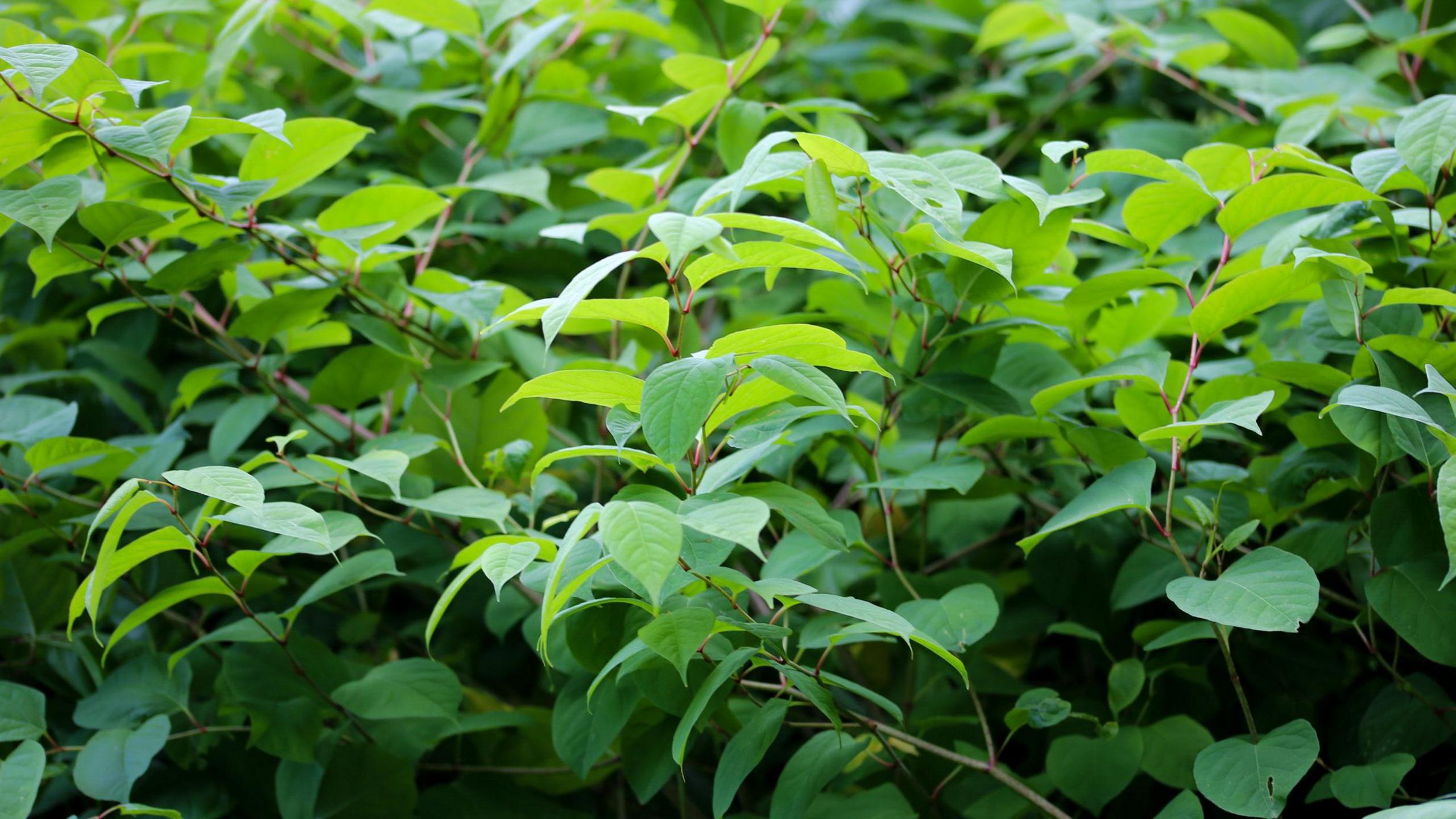
Japanese knotweed is a non-native plant in the UK and can spread rapidly
Plans to repair or upgrade sea defences in the area could be delayed if no action is taken, and the council also has a legal obligation to remove the damaging weed.
Various suggestions have been made to help keep it under control, including the use of herbicides containing glyphosate.
In the long term, the council said it intended to monitor the weed's response to treatment to help keep track of the infestation and prevent further spread.
Erosion of cliffs at Overstrand has led to NNDC closing the promenade for several months due to debris falling on to the walkway.
The landslips have been blamed on the clay, silt, gravel, chalk and sand materials that form the cliffs, which are naturally unstable and prone to slumping when wet.
Urgent repairs are also needed for parts of the sea wall, which is essential in protecting the vulnerable coastline.
The council's cabinet members will meet on 8 September to discuss ways to tackle Japanese knotweed.
Get in touch
Do you have a story suggestion for Norfolk?
Follow Norfolk news on BBC Sounds, Facebook, external, Instagram, external and X, external.
Related topics
- Published7 March
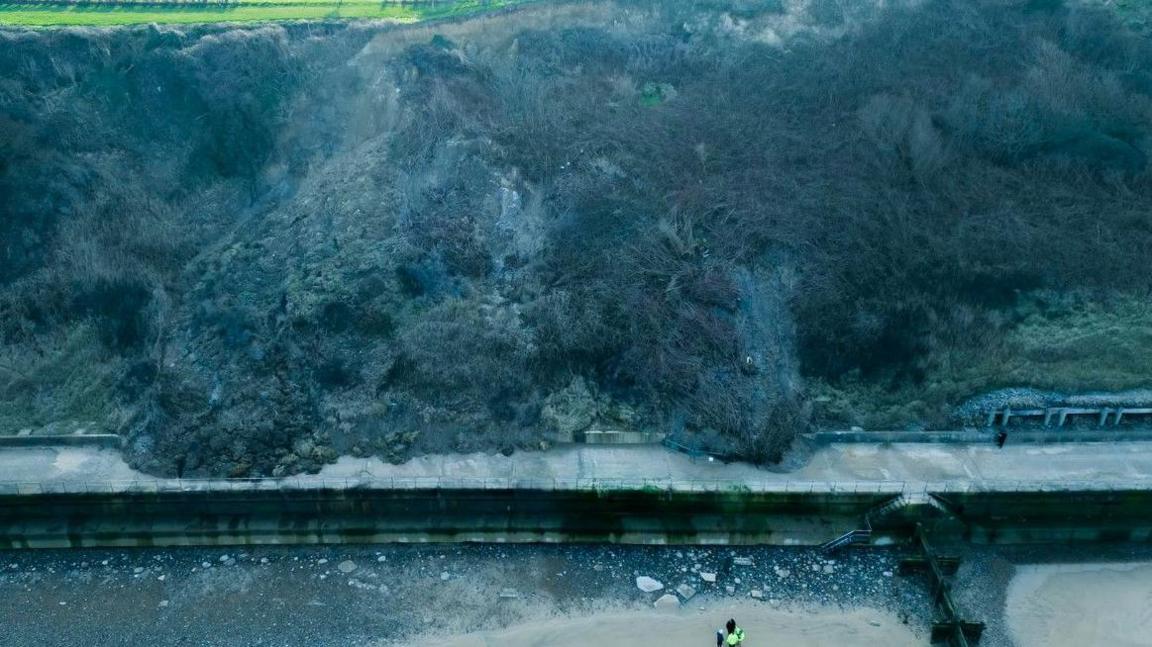
- Published1 February
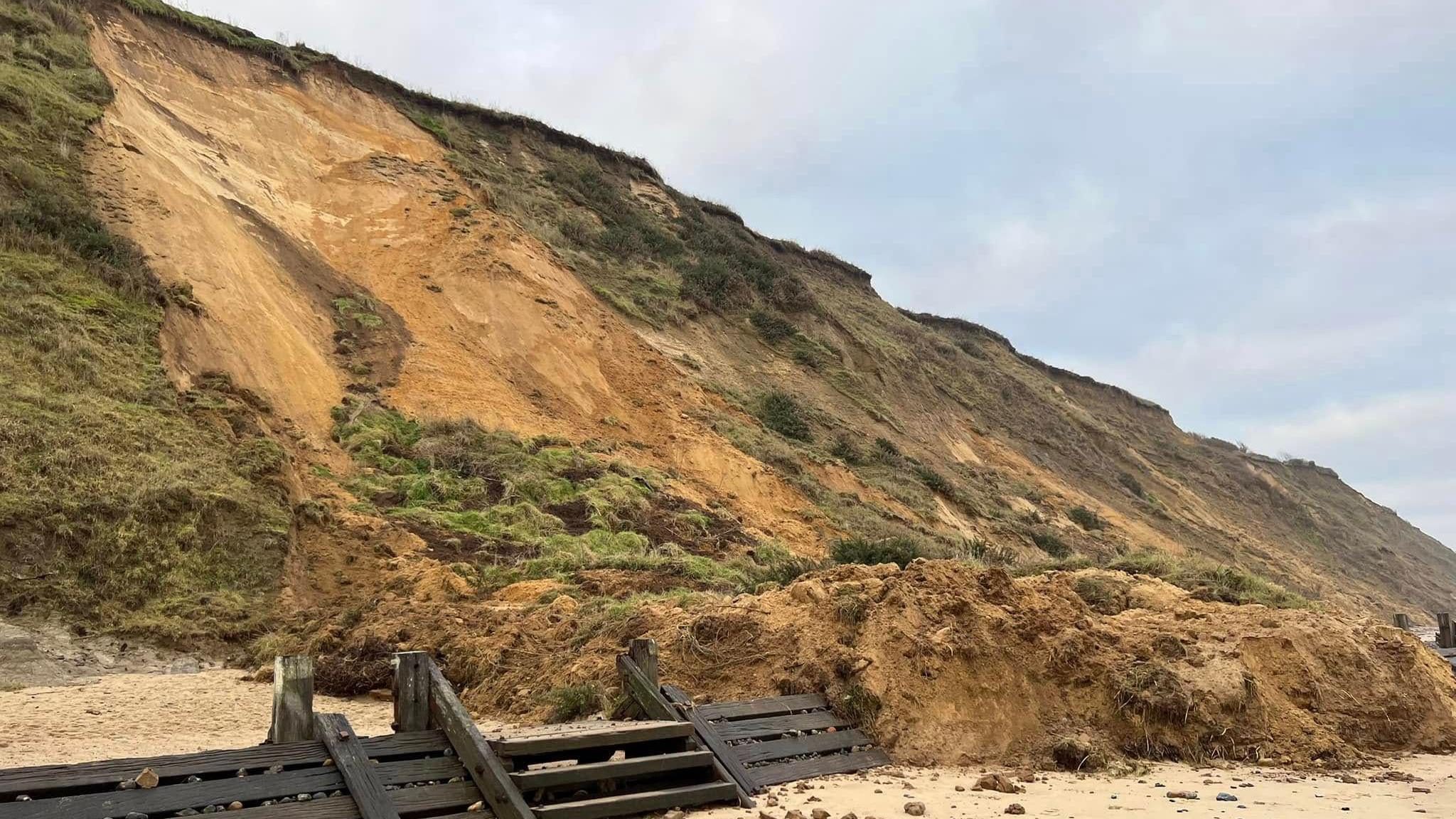
- Published11 February
